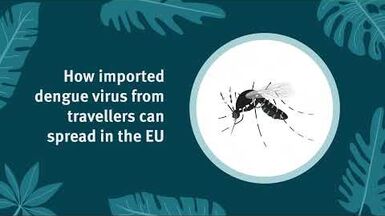Guidance and protocol for the use of real-time PCR in laboratory diagnosis of human infection with Bordetella pertussis or Bordetella parapertussis
ECDC is addressing the harmonisation and improvement of pertussis diagnosis for surveillance and outbreak detection/monitoring in order to assure quality and comparability of data. The guidance and protocol are intended for real-time PCR on DNA extracted from clinical specimens obtained from patients with suspected whooping cough (i.e. Bordetella pertussis or B. parapertussis).
Executive Summary
Since 2011, increases in the number of cases of pertussis, commonly known as whooping cough, have been repeatedly reported across the world, even in those with sustained high vaccination coverage. The situation in Europe mirrors that overall trend.
ECDC is addressing the harmonisation and improvement of pertussis diagnosis for surveillance and outbreak detection and monitoring in order to assure quality and comparability of data. As part of this project ECDC is publishing two complementary guidance and protocols on Bordetella pertussis, the first on serological diagnosis of human infection and the second on the use of RT-PCR (real time polymerase chain reaction) for diagnosis of bordetella infections.
The former document is a consensus document on laboratory guidance for the determination of serum Immunoglobulin G (IgG) anti-pertussis toxin antibodies to pertussis by enzyme-linked immunosorbent assay (ELISA) serology for European laboratories. The review of the scientific literature updates together with other research constitutes the basis of the serological diagnosis document.
The second document, on the use of RT-PCR for diagnosis, is a consensus document on laboratory guidance relating to the use of real-time PCR on DNA extracted from clinical specimens. The guidance and protocol is intended for real-time PCR on DNA extracted from clinical specimens obtained from patients with suspected whooping cough (i.e. infection with Bordetella pertussis or B. parapertussis).
Both documents have been produced by the members of the European Bordetella expert group ‘EUpert-Labnet’ as part of “Coordination of activities for laboratory surveillance of whooping cough in Member States and EEA countries” project.




